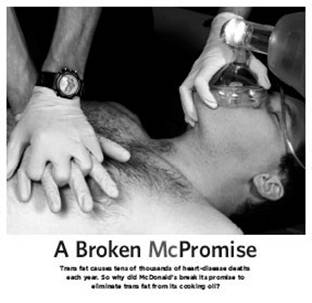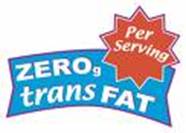Center for Communications, Health and the Environment

CECHE Promotes Healthy Hearts
CECHE is dedicated to improving health across the globe. Among its major projects are two that especially pertain to obesity.
The Global Dump Soft Drinks Campaign tackles a subset of what may be the single largest driver of the obesity epidemic: the consumption of sugared beverages. (See In Focus, Vol. 3, Issue 2, www.ceche.org/publications/infocus/summer2008/news.html.) The initiative aims to reduce intake of sweetened, high-calorie carbonated beverages to improve diet and health worldwide through information dissemination, industry partnerships and media coverage. 
In addition, CECHE is collaborating with the Center for Science in the Public Interest (CSPI) to support the Campaign for Healthy Hearts, a program designed to promote public health policies to reduce cardiovascular disease (CVD), for which obesity is a major risk factor. CVD is the leading cause of death in the United States, with coronary heart disease and stroke killing some 650,000 each year, and medical procedures, statins and other medications for these illnesses costing Americans $90 billion annually.
Since 2004, CSPI has been working with CECHE support to develop advocacy strategies to fight CVD. In addition to partnering with experts and encouraging a more plant-based diet, the Campaign for Healthy Hearts champions the need to eliminate trans fat and reduce the amount of sodium in diets.
Most recently, strides have been made on the sodium-reduction front. In July 2008, CSPI, in conjunction with the Association of State and Territorial Health Officials and the National Association of County and City Health Officials, hired salt and hypertension expert Dr. Steven Havas to coordinate a unique private meeting of state and local health department officials from around the country. Co-chaired by the health commissioners of Florida and Chicago, the meeting attracted 21 health commissioners or their deputies from 18 cities and states, as well as three representatives from the Centers for Disease Control.
The purpose of the meeting was to impress upon health officials just how harmful high-sodium diets are and to explain how these individuals could play a role in their jurisdictions, and across the United States, to reduce sodium levels in the food supply. The agenda included a discussion of sodium-reduction initiatives in the United Kingdom and Finland; a brainstorming session on possible actions and strategies; and a panel discussion about the lessons learned from the trans-fat and menu-labeling initiatives that CSPI has coordinated under the campaign and which have led to the mandatory labeling of trans fat on Nutrition Facts labels and to chain restaurants listing detailed nutrition information on menus and menu boards in several cities and states nationwide.
 Based on the meeting, 10 health departments filed comments with the U.S. Food and Drug Administration (FDA) urging the agency to revoke the “Generally Recognized As Safe" or GRAS, status of salt and have it reclassified as a (more tightly regulated) “food additive.” This support from health officials helps bolster CSPI’s advocacy on salt, which began 30 years ago with a petition to revoke salt’s GRAS status and require better labeling of sodium.
Based on the meeting, 10 health departments filed comments with the U.S. Food and Drug Administration (FDA) urging the agency to revoke the “Generally Recognized As Safe" or GRAS, status of salt and have it reclassified as a (more tightly regulated) “food additive.” This support from health officials helps bolster CSPI’s advocacy on salt, which began 30 years ago with a petition to revoke salt’s GRAS status and require better labeling of sodium.
The meeting also encouraged health commissioners to collaborate with one another in pressing the food industry to reduce sodium levels. And in October 2008, health officials from around the country held a confidential meeting with about 15 food manufacturers to challenge them to voluntarily lower sodium levels. Around this time, CSPI also organized a teleconference of health officials during which a New York City official explained how his city is using its procurement policies to press industry to reduce sodium levels.
 These “wins” are part of a larger list of accomplishments by CSPI and the CSPI-CECHE Campaign for Healthy Hearts to influence government policy and improve corporate practices. Other successes over the years have included getting nutrition information on nearly all packaged foods and requiring that common allergens be listed clearly on food labels. CSPI has also helped to slash the amount of trans fat in the American diet through petitions demanding their mandatory listing on Nutrition Facts labels and requiring restaurants to disclose the use of shortenings that contain them; the launch of an interactive Web site, www.transfreeamerica.com; strategically publicized studies and efforts; and constant industry and congressional pressure for voluntary and regulatory actions to reduce trans-fat use and consumption.
These “wins” are part of a larger list of accomplishments by CSPI and the CSPI-CECHE Campaign for Healthy Hearts to influence government policy and improve corporate practices. Other successes over the years have included getting nutrition information on nearly all packaged foods and requiring that common allergens be listed clearly on food labels. CSPI has also helped to slash the amount of trans fat in the American diet through petitions demanding their mandatory listing on Nutrition Facts labels and requiring restaurants to disclose the use of shortenings that contain them; the launch of an interactive Web site, www.transfreeamerica.com; strategically publicized studies and efforts; and constant industry and congressional pressure for voluntary and regulatory actions to reduce trans-fat use and consumption.
With regard to sodium reduction, CSPI has published “Salt – the Forgotten Killer" and “Salt Assault: Brand-Name Comparisons of Processed Foods." It works closely with World Action on Salt and Health, an international coalition of medical experts waging a global campaign against salt. It also partners with national professional associations, including the American Medical Association, which passed a resolution emphasizing the need to achieve 50 percent sodium reductions for processed and restaurant foods, and urging the FDA to revoke salt’s GRAS status.
In July 2007, CSPI and several prominent health care organizations co-signed a letter to the chairman of the Energy and Commerce Health Subcommittee urging him to hold a hearing on salt reduction in the American diet. A long-overdue hearing on the subject was held by the FDA in November 2007.
Read More:
Lead Article: Obesity and Overnutrition Trump Undernutrition in Newly Affluent Nations
In the Spotlight: The Economics of Obesity
CECHE News: CECHE Promotes Healthy Hearts
Also Noted: Is Obesity Contagious?

Dr. Sushma Palmer, Program Director
Valeska Stupak, Editorial & Design Consultant
Shiraz Mahyera, Systems Manager
Daniel Hollingsworth, Website Consultant